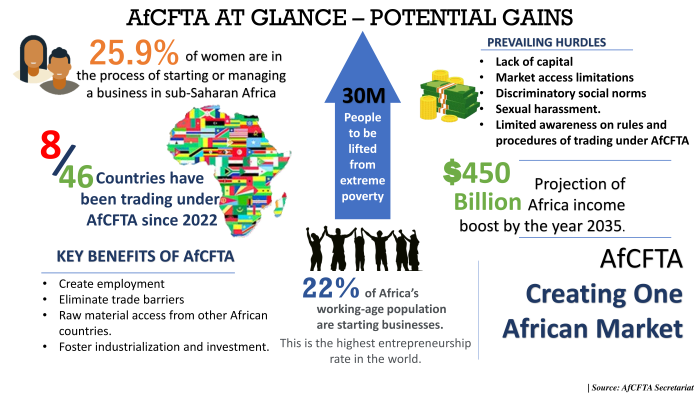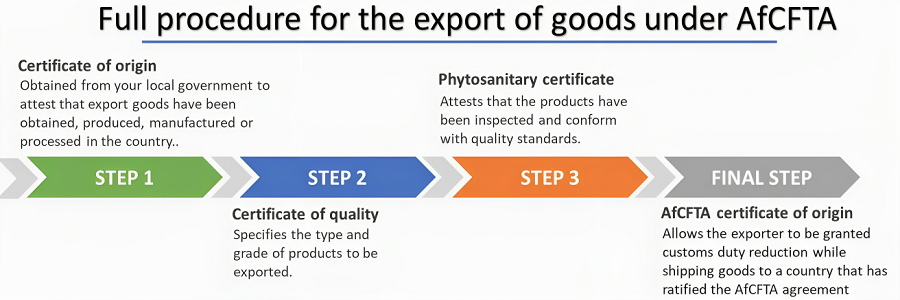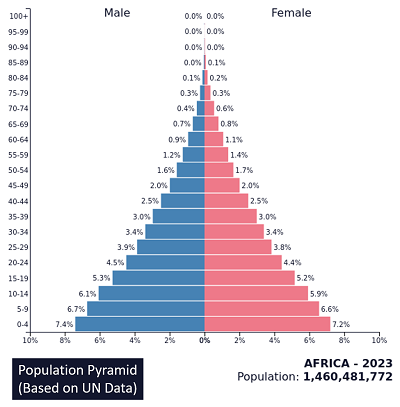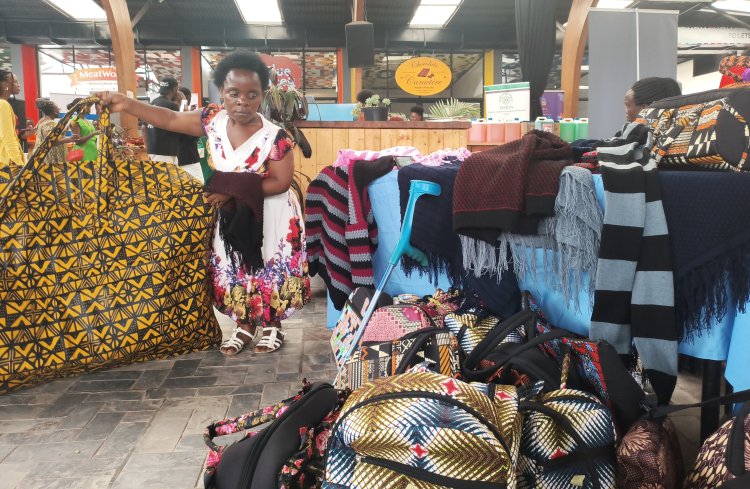Each day women and youth in trade across Africa navigate hurdles after hurdles on quest to make it or stay afloat in business.
They contend with capital and funding problems when starting, and later grapple with obstacles ranging from market access limitations, difficulty complying with standards to limited capacity to sustain quantities required by the market.
These issues, coupled with prevailing discriminatory social norms and cases of sexual harassment that hold many back, were yet to be effectively dealt with by the time the 1.3 billion-people continental market popularly known as AfCFTA officially opened on January 1, 2021.
Under this trade agreement, all products that meet set conditions — rules of origin, agreed quality and safety standards — move freely and enjoy preferential tariff treatment at borders.

However, prevailing limitations could explain why despite the AfCFTA promising to turn around lives of millions through trade, Senegalese entrepreneur Aïssatou Touré Souaré is not impressed. Ms. Touré Souaré runs a chocolate business in the capital Dakar with the support of her mother.
To keep the business going, they source cocoa beans which they use as raw material from neighboring Ivory Coast, and have been struggling to be profitable in the 17-million local market even as financial challenges stand in the way of efforts to tap into cross-border trade within the West Africa bloc or beyond.
She is unsure whether to describe the continental trade agreement her country’s government ratified on March 12, 2019 as an opportunity or a challenge. Ms. Souaré’s biggest concern is that local nascent entrepreneurs like herself are unprepared, and could lose out in absence of frameworks that position them to be competitive and tap into markets beyond Senegal.
“For us it may be difficult because we are already struggling as small companies, we have really small niche market, and we could lose ourselves when big companies from say Nigeria flood the market. It’s a bit of fear and a challenge,” Touré Souaré told NewsPaper Africa.
Also read: Made in Africa: States work to harmonise standards, rules of origin requirements
Her concerns are no different from those of small, medium enterprises and individual business people from other parts of the continent who are mulling, or have moved, to tap into the bigger African market. They indicate that AfCFTA holds huge potential and an economic boon, but only those with big financial muscle are able to leverage these emerging trade opportunities.
For us it may be difficult because we are already struggling as small companies, we have really small niche market, and we could lose ourselves when big companies from say Nigeria flood the market. It’s a bit of fear and a challenge.
Aïssatou Touré Souaré, Senegalese young entrepreneur
For instance, Briggette Harrington, Chief Executive of Igire Coffee, women-led coffee company in Kigali, is one of the pioneers of trading under AfCFTA having shipped first consignments of Rwanda’s popular coffee products to Ghana in September last year, went on to trade more and now eyes other countries.
Her success could mean higher returns for hundreds rural women coffee farmers in Coko and Ruli sectors of remote Gakenke District, North of the East African country who supply her and other coffee export firms with the product.
Here, individual rural women coffee farmers and cooperatives namely Dukundekawa Musasa, Hinga Kawa and others labour daily in coffee plantations to deliver one of the much loved product locally and at international markets.

Dukundekawa Managing Director, Ernest Nshimyimana is upbeat on the prospects of the continental market given its potential to spark a rise in demand, possibly translating into better farm gate prices, from current Rwf410 ($0.34) per kilo of coffee beans, and higher profit margins on processed coffee.
Mr. Nshimyimana oversees the cooperative’s business operations, which involve coffee washing stations and a coffee production line, and guides the long-term investment for the 1,193-member cooperative.
“When the market is vibrating, people compete even on primary production and it’s good for the farmers. We look forward to seeing how the expanded market is going to benefit small producers like in our case,” he said, adding that efforts to directly participate in the cross border trade are still marred by a wide range of constraints.
Mrs. Harrington of Igire Coffee who has been exporting describes trade under AfCFTA as lucrative only when “you have products that meet international standards in terms of content, packaging, and labeling.”
“If any of these are off when exporting, the importer will have a problem clearing at customs and may be advised that the shipment must be exported or destroyed at the importer’s expense. It is also imperative that there is a buyer who will distribute your products in the country that you are sending the product to,” she said.
Her coffee products go through regulatory procedures to obtain a certificate of origin, a certificate of quality, a phytosanitary certificate and then securing the AfCFTA certificate of origin that accompany the goods for them to qualify for the reduction of duty at customs.

Lack of awareness about these steps, Harrington said, still holds women and youth enterprises back, and it is not the only major constraint.
“To engage more women-owned enterprises and youth-owned enterprises, there must be a program that they can participate in where their only job is to produce goods that meet international standards,” opines Harrington.
“This program must allow them to ship small quantities, consolidate their shipment with other small producers, provide a storage facility for their goods until the products are sold, provide an outlet for their products to be sold, and a means to attract customers.”
To engage more women-owned enterprises and youth-owned enterprises, there must be a program that they can participate in where their only job is to produce goods that meet international standards.
Briggette Harrington, Chief Executive, Igire Coffee
Standing on their own feet
Such type of initiative, she indicated, would allow women and youth enterprises to participate in international trade, and it would also allow them to grow organically until they can stand on their own feet.
Input from young people and African Union (AU) partner organisations point to the fact that national authorities need to address these limitations to allow local youth and women entrepreneurs to trade beyond borders.
They say envisioned gains and more specifically the success of AfCFTA in terms of boosting intra-African trade and expanding the size of Africa’s economy won’t be achieved in absence of active role of the youth and women.

Also read: Are youth shaping Africa’s future?
Youth make up 60 per cent of Africa’s population, and there is a total of over 450 million youth on the continent, a number that is expected to rise significantly to constitute 42 per cent of global youth by 2030, according to both AU and United Nations projections.
Alexio Musindo, International Labour Organization (ILO) representative to the AU is of the view that national authorities need to work on policies that allow this demographic to seize the AfCFTA opportunity to become enterpreneurs and wealth creators.
“There is need for a radically new financial ecosystem that caters to the needs of young people. Why not create youth entrepreneurship banks at national level to ease access to finance by young people?” reflected Musindo.
Views of Musindo, those of African young people themselves and other partners were in May this year captured in recommendations submitted for consideration at AU member States’ ministers meeting that sought to devise priorities for youth development and empowerment at continental level.
Also read: African youth demand Govts action on rising unemployment
Engine of trade
Concerns of similar nature have equally seen the AU urge member States to prioritise youth and women in policy formulation because officials believe that their creative and innovative potential across sectors are key to achieving desired gains under AfCFTA.
The AU Assembly of heads of State at its 35th ordinary session held in February 2022 adopted the decision to include a protocol on women and youth in trade in the scope of the AfCFTA agreement. The AfCFTA secretariat has since undertaken negotiations to design the youth and women protocol.

Under the policy document, authorities promise to address the particular capital and finance access constraints women and youth in trade face, in addition to limited access to trade-related information, compliance with standards and procedures at borders, among others.
“Women and youth are truly the engine of trade in Africa. They are essential to the impactful implementation of the AfCFTA,” said AfCFTA Secretary General Wamkele Mene, adding that inclusiveness is at the heart of the trade agreement.
Also read: African leaders root for AfCFTA full operationalisation
Women and youth are truly the engine of trade in Africa. They are essential to the impactful implementation of the AfCFTA.
Wamkele Mene, AfCFTA Secretary General
Much as youth with enterprises laud the move, they maintain that in light of changing requirements for trade under AfCFTA, similar considerations should extent to national policies to ensure they [youth] are incentivized enough to trade beyond borders.
This is a view shared by Charles Muhindo, team leader at Citizen Voice, a Uganda-based platform connecting citizens to their leaders. He shares that with awareness, many young people are increasingly positioning themselves to export services and products to other countries under AfCFTA, but will need conducive environment locally to propel their innovations.
“Our concern as youth entrepreneurs is that design of tax laws locally tend to focus on the ‘big guys’. We are demanding adjustments in the tax systems to give tax breaks to youth enterprises that are coming up so young people don’t sit on their innovations,” he said.
~ Data visualization by Jesse Mwatsama
———
This publication is made possible by the AU Media Fellowship program, which is implemented by the African Union (AU) through the Information and Communication Directorate, supported by Deutsche Gesellschaft für Internationale Zusammenarbeit (GIZ) on behalf of the German Federal Ministry for Economic Cooperation and Development (BMZ). Views and opinions expressed are however those of the author(s) only and do not necessarily reflect those of GIZ or the African Union.










